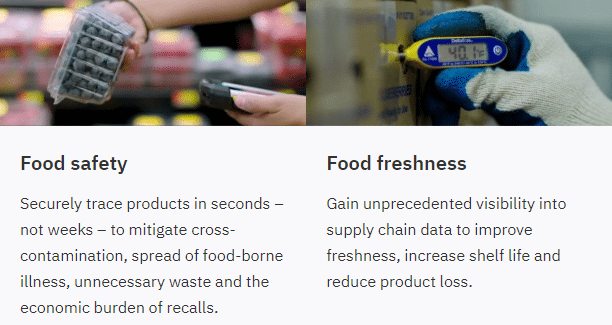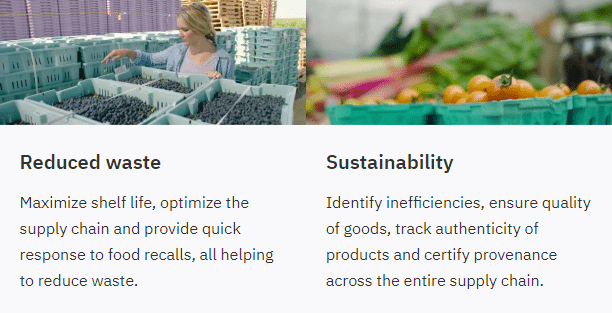IBM takes one more step further into the innovative emerging technologies these days.
After about 18 months of in-house testing, IBM has reportedly launched its very own blockchain-enabled food tracking platform.
From now on, retail companies, food item suppliers, and wholesalers will be able to use the tech giant’s distributed ledger (DLT) food traceability software.
The food item tracking solution is called IBM Food Trust Platform, and it has been introduced as a proof-of-concept and used in a limited number of pilots.
Yesterday, IBM announced that its solution-as-a-service SaaS cloud-based food tracking software was officially accessible to any organization that is looking to monitor products on their supply chains.
One of the first large-scale blockchain-based solutions
The deployment of IBM’s enterprise-level Food Trust platform makes it one of the very first companies that have introduced a production-ready blockchain-based solution on such as large scale.
The companies who have already signed up to use the Food Trust software include the following: wholesale supplier BeefChain, Smithfield Foods Inc, and Dennick FruitSource.

Eliminating barriers
Bridget van Kralingen, IBM’s SVP for its Global Industries, Platforms, and Blockchain efforts, told Forbes:
“That collaborative approach is how the members of IBM Food Trust have shown blockchain can strengthen transparency and drive meaningful enhancements to food traceability. Ultimately, that provides business benefits for participants and a better and safer product for consumers.”

Kralingen also added that the currency of trust today is transparency and in order to achieve this in the area of food safety, there is a need to share responsibility.
According to Kralingen, who previously worked at Deloitte Consulting as a senior financial services manager, IBM’s Food Trust will be able to eliminate essential barriers to implementing enterprise-level blockchain software.
These include developing an ecosystem that flaunts a viable business model, a proper governance system, interoperability, secure data management, and standardization.











